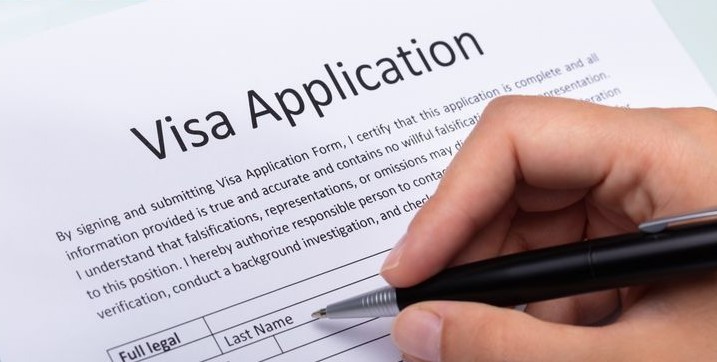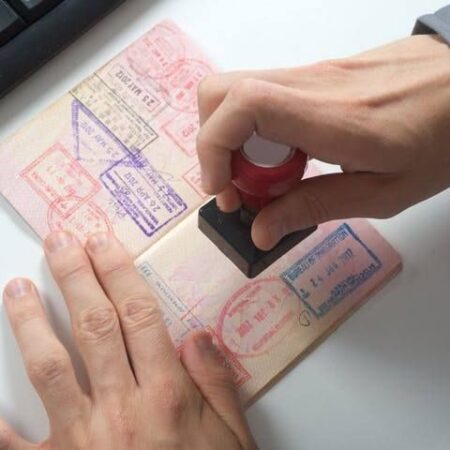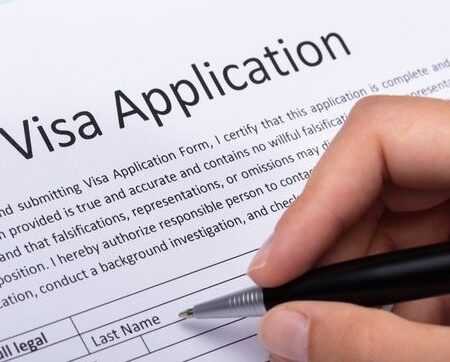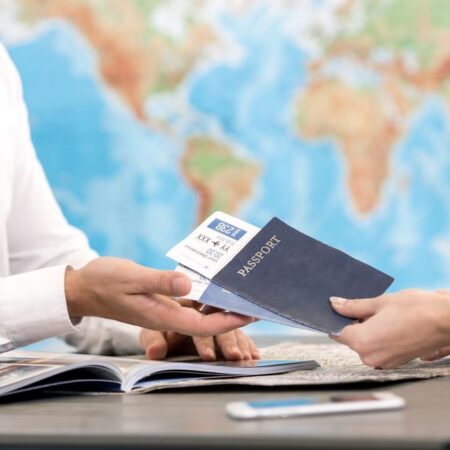
One of the most common reasons visa applications are denied is the applicant’s inability to convince the visa officer that they have strong reasons to return home after their trip. For Nigerian travelers applying for visas to countries like the United States, the United Kingdom, Canada, or Schengen states, proving that you have significant ties to Nigeria is one of the most critical parts of a successful visa interview.
Visa officers are not just interested in your travel plans; they are trying to assess your intentions. They need to be convinced that you will return to Nigeria after your visit and not overstay your visa. Demonstrating solid personal, economic, and social ties is key to showing that your roots are firmly planted at home.
In this comprehensive guide, we will explain what “ties to Nigeria” really mean, how to present them effectively during your interview, and common mistakes to avoid. Whether you’re applying for a tourist, student, or work visa, understanding this concept can dramatically improve your chances of approval.
What Are “Ties to Nigeria”?
“Ties” refer to all the factors that bind you to your home country, your family relationships, employment, business, property, education, and long-term commitments that make you likely to return after your trip abroad.
Visa officers evaluate these ties to determine if your visit is genuinely temporary. The stronger your connections to Nigeria, the higher your credibility as a genuine visitor. These ties can be classified into three main categories:
- Family and Social Ties: Your relationships with family members, dependents, or communities that depend on your presence in Nigeria.
- Economic and Financial Ties: Your employment, business ownership, investments, or financial responsibilities within Nigeria.
- Academic or Professional Commitments: Your ongoing education, future career plans, or contractual obligations that require your return.
A well-prepared applicant knows how to express these connections clearly and confidently during the interview.
Why Demonstrating Ties is So Important
Visa officers have limited time to make decisions—often just a few minutes per interview. They base their judgment not only on your documents but also on your responses and overall presentation. If they suspect that you might not return after your trip, your application could be refused under the infamous “Section 214(b)” rule (for U.S. applicants) or its equivalent in other countries.
Proving ties to Nigeria helps you:
- Build credibility as a genuine traveler.
- Show that your purpose is temporary and legitimate.
- Strengthen your case even if you have limited travel history.
- Increase your chances of getting a visa approval.
In short, strong ties tell the embassy, “I have every reason to come back home.”
How to Demonstrate Strong Ties to Nigeria
1. Show Evidence of Stable Employment or Business
Your job or business is one of the most persuasive indicators of your commitment to Nigeria. If you’re employed, present an official employment letter stating your position, salary, and length of service. You should also include a letter from your employer granting you leave and confirming your return date.
For business owners, provide your business registration certificate, tax documents, and bank statements showing ongoing transactions. If you run a thriving business, make sure to explain it confidently during your interview, this shows stability and responsibility.
2. Highlight Family Relationships and Responsibilities
Family ties carry great weight, especially if you have dependents or relatives who rely on you. Mention your spouse, children, or parents who live in Nigeria and depend on your presence or financial support. Provide birth certificates, marriage certificates, or evidence of family commitments.
If you’re married but your spouse is staying in Nigeria while you travel, make this clear—it demonstrates that you have reasons to return home.
3. Present Proof of Property or Real Estate Ownership
Owning land, a house, or rental property in Nigeria is a strong sign of financial commitment. Property documents such as a Certificate of Occupancy, property deeds, or purchase receipts can help convince the visa officer that you are rooted in the country.
Even if you don’t own property, having a long-term lease or family inheritance can still count as evidence of stability.
4. Show Active Financial and Investment Records
Your financial stability is another important factor. Submit evidence of your Nigerian bank accounts, investment portfolios, or savings. Avoid presenting large one-time deposits right before your interview—visa officers are trained to detect financial inconsistencies.
A consistent financial record with regular inflows from salary or business activity is more credible than sudden lump sums.
5. Emphasize Educational or Professional Engagements
If you’re a student, your ongoing academic program is proof that you must return to Nigeria. Present admission letters, student ID cards, transcripts, and evidence of school fees payments. For professionals pursuing postgraduate studies or short courses abroad, show how your international education will enhance your career opportunities back home.
Visa officers are more likely to approve applications where the trip aligns with your long-term career or educational goals in Nigeria.
6. Demonstrate Social and Community Involvement
Participation in local organizations, volunteer groups, or religious institutions shows that you are active and engaged in your community. Mentioning these ties adds depth to your profile and highlights that you are integrated into Nigerian society.
7. Prepare to Communicate Clearly During the Interview
Even with all the right documents, poor communication during your interview can hurt your chances. Be confident, polite, and honest when answering questions about your trip and your ties to Nigeria. Avoid memorized or rehearsed answers, visa officers value sincerity.
If asked why you will return, respond naturally by referencing your work, business, studies, or family responsibilities. Your tone and body language should reflect calm confidence.
Common Mistakes Applicants Make
Many Nigerian applicants unknowingly weaken their applications by making these mistakes:
- Submitting fake or inconsistent documents.
- Giving vague answers about employment or family life.
- Showing financial accounts that don’t match their lifestyle or earnings.
- Lying about their purpose of travel.
- Appearing nervous or unprepared during interviews.
These errors create doubt in the visa officer’s mind and can lead to immediate rejection. Transparency and authenticity always work better than trying to “outsmart” the system.
Expert Tips for a Successful Interview
- Be honest and consistent: Everything you say must align with your documents.
- Organize your papers: Keep your supporting documents neat and easily accessible.
- Dress appropriately: Present yourself professionally to make a good first impression.
- Know your story: Be ready to explain your travel purpose, itinerary, and how your trip fits into your life goals.
- Get professional guidance: Consulting a visa support expert such as oramustravelservices.com.ng can help you prepare the right documentation and rehearse confidently for your interview.
Why Visa Officers Emphasize “Ties”
Visa officers are not trying to discourage travel; their role is to ensure that applicants comply with immigration laws. Every year, thousands of people overstay their visas or migrate illegally. As a result, embassies are cautious about issuing visas to applicants who appear likely to remain abroad.
When you clearly demonstrate your strong ties to Nigeria, you reassure the officer that you respect the rules and intend to return. It’s not just about having documents; it’s about how convincingly you can link those documents to your real life and commitments.
Your visa interview is not just about paperwork, it’s about perception and proof. Demonstrating strong ties to Nigeria helps the embassy see you as a genuine traveler who will return after your trip. From family commitments to professional engagements and property ownership, every piece of evidence you present adds credibility to your application.
Preparing early, organizing your documents, and seeking professional assistance can make a significant difference. A visa support expert can help you highlight the right details, avoid common mistakes, and present your case effectively.
Remember, confidence and honesty are your greatest assets. Show the visa officer that your life, future, and commitments are firmly rooted in Nigeria, and that your travel is simply a temporary journey to learn, explore, or connect.
Fill this FORM to get visa support today.








No Comment! Be the first one.